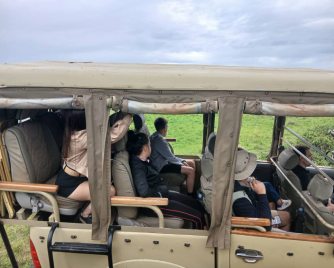Faq
Asked Questions
The ideal time to visit is during the two main dry seasons: December to February
and June to August. During these periods, skies are generally clear, roads are easier
to navigate, and wildlife viewing is enhanced as animals gather around water sources
in the national parks.
Yes, most international travelers require a visa. We strongly recommend applying for
the Uganda E-Visa online well in advance of your departure date to ensure swift entry
upon arrival at Entebbe International Airport (EBB).
While possible in some cases, it is highly recommended to secure your E-Visa
online before arrival. This will minimize delays, streamline the immigration
process, and ensure you meet all current governmental requirements.
Uganda is known as a safe and welcoming destination for tourists. Professional
tour operators follow strict safety guidelines. Always follow the advice of your
guides, especially during city visits and wildlife activities.
Beyond the mandatory Yellow Fever, consult your doctor regarding recommended
vaccines for international travel, such as Typhoid, Hepatitis A and B.
Key items include binoculars, a reliable camera with a zoom lens, sunglasses,
a wide-brimmed hat, and strong insect repellent. Pack comfortable clothing in
neutral colors (khaki, olive, brown) to blend into the environment.
Yes, it is essential. Your policy must include coverage for emergency medical
evacuation, especially if participating in remote activities like Gorilla trekking
in Bwindi or high-altitude hiking in the Rwenzori Mountains.
We highly recommend soft duffel bags. If your itinerary includes internal
domestic flights (especially to Bwindi or Murchison Falls), charter aircraft
have strict weight limits (often 15 kg/33 lbs per person) and limited cargo space,
making soft luggage essential.

0 +
Est. 20220 +
Countries(Uganda, Kenya, Rwanda)



